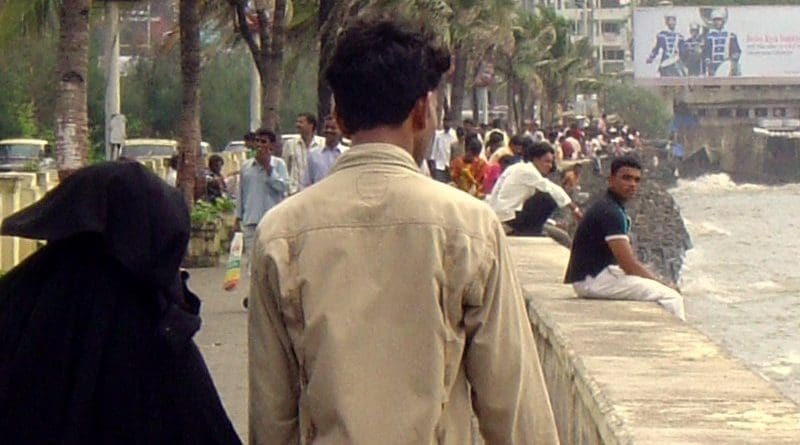Instant Triple Talaq Will Go As Ordained – OpEd
It seems like poetic justice. What started off as a slur with the Shah Bano issue has been finally resolved with the Shayara Bano judgement. The Indian Supreme Court’s lofty history is scarred with the shameful reversal of the historic judgement in Shah Bano’s case passed in favour of the Muslim divorcee seeking alimony, by the-then Congress government who – by dint of absolute majority – enacted the Muslim Women (Protection of Rights on Divorce) Act in the Parliament back in 1986. The move strained the already-tense relations between the Judiciary and the Legislature even further.
Thirty-two years later, the present-day government, after passing the Muslim Women (Protection of Rights in Marriage) Act in the Lok Sabha and reaching a roadblock in Rajya Sabha owing to a belligerent Opposition, resorted to the Ordinance route to implement the new legislation on Instant Triple Talaq. It has demonstrated phenomenal legislative resolve and, in a clean sweep, restored the Judiciary’s faith in legislative processes.
Back in history, following the Shah Bano judgement, Muslim politicians had mounted a vitriolic campaign for the verdict’s nullification. Under pressure from Islamic orthodoxy and panicky in an election year, the Congress government gave into the pressure and reversed the judgement by introducing the Muslim Women (Protection of Rights on Divorce) Act and enforced a highly controversial legislation that restricted the right to maintenance to the period of iddat after the divorce and shifted the onus of maintaining the Muslim woman on ‘her’ relatives or the Wakf Board. The move was perceived across the world as being discriminatory as it denied right to basic maintenance available to non-Muslim women under common law.
Today, the pressures faced by the BJP government are as bad if not worse. For the Supreme Court to even consider judging the issue of Instant Triple Talaq in the case of Shayara Bano instead of simply dismissing it as an issue in the domain of the Legislature, was a huge step in the direction of resolving relations between the Legislature and the Judiciary. Post Shah Bano, the Supreme Court would be fully justified in reserving its judgement on Shayara Bano’s Instant Triple Talaq issue and instead throwing the contentious ball back to the Legislature historically known to pander to populist sentiments. But, the Supreme Court didn’t do so. And, instead, ruled on the Instant Triple Talaq with judicious alacrity synonymous with the nation’s highest court.
It examined whether the practice of Talaq-E-Biddat (Instant Triple Talaq) was ‘Islamic’ by analysing the views of religious scholars on the issue; checked its validity and reach in South Asia, Islamic countries and legality across the world. And, in a 395-page judgement complete with overwhelming analysis of religious verse and sentiment, passed its order criminalising the act. The Supreme Court went on to ask the Legislature to enact a law to criminalise the practice of ‘Instant Triple Talaq’.
The move was progressive, women-centric and great in law. But then, it wasn’t populist as most good judgements. Reportedly, some Muslim men in Uttar Pradesh have committed Instant Triple Talaq even after the Supreme Court declared it illegal. Till a law on it is passed, the acts of Instant Triple Talaq can be tried as Contempt of Court. But, what is of pivotal importance is the present-day government’s truthful resolve in reaching justice to a section of women while fending off attacks by fundamentalist, orthodox segments and politically motivated sections within the community and beyond.
The present-day Bill lays down a provision for the aggrieved wife to seek subsistence allowance and custody of her minor children by moving court. According to the Bill, Instant Triple Talaq, proclaimed verbally, through writing or electronic form through Whatsapp, messages or otherwise, would be illegal and void. Instant Triple Talaq would be proclaimed a cognisable and a non-bailable offence and any aggrieved Muslim woman would be entitled to approach a magistrate court to seek redress.
After seeking the opinion of all State governments on the issue and procuring the support of a majority for the new legislation drafted by the Centre, the Bill was stuck in the Upper House (Rajya Sabha) due to a deadlock over the Opposition’s demand seeking its reference to a Select Committee for a ‘close scrutiny’ despite it (the Bill) being cleared by the Lok Sabha.
Left with no option, the Government has decided to move an Ordinance to make the progressive Legislation a reality and swiftly too. And, while the Ordinance route, in theory, seems a wee high-handed, in practice particularly in such a situation provides legal respite. In a sharp contrast of sorts, the very Opposition that has been charging the BJP government with trying to usurp the powers of the Judiciary (CJI issue) through undemocratic means has been stalling the progress of the Instant Triple Talaq Bill initiated by none other than the Supreme Court itself.
The present-day Legislature is paying back the Judiciary in its own coin by making a Law as laid down in the Shayara Bano case. And now, in the face of such overwhelming opposition, an Ordinance is the only way left for the government to keep the faith.

